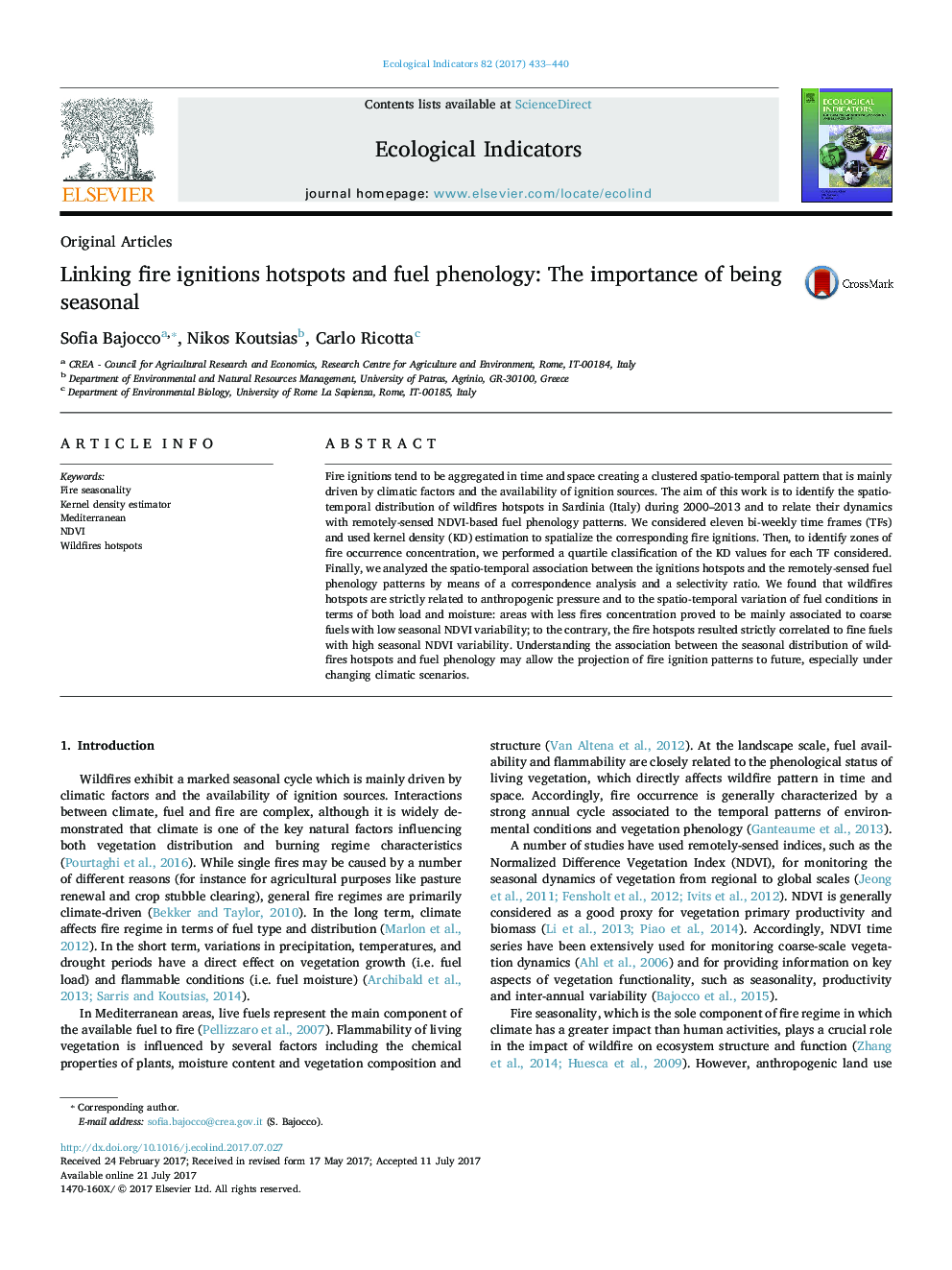| Article ID | Journal | Published Year | Pages | File Type |
|---|---|---|---|---|
| 5741343 | Ecological Indicators | 2017 | 8 Pages |
â¢We studied the association between wildfires hotspots seasonality and fuel phenology.â¢Kernel density estimation was used to define fire ignition hotspots.â¢MODIS NDVI temporal profiles were used to detect fuel phenology.â¢Wildfires hotspots proved to be strictly related to fuel conditions patterns.â¢Climate represents a main controlling factor of burning even for human-driven fires.
Fire ignitions tend to be aggregated in time and space creating a clustered spatio-temporal pattern that is mainly driven by climatic factors and the availability of ignition sources. The aim of this work is to identify the spatio-temporal distribution of wildfires hotspots in Sardinia (Italy) during 2000-2013 and to relate their dynamics with remotely-sensed NDVI-based fuel phenology patterns. We considered eleven bi-weekly time frames (TFs) and used kernel density (KD) estimation to spatialize the corresponding fire ignitions. Then, to identify zones of fire occurrence concentration, we performed a quartile classification of the KD values for each TF considered. Finally, we analyzed the spatio-temporal association between the ignitions hotspots and the remotely-sensed fuel phenology patterns by means of a correspondence analysis and a selectivity ratio. We found that wildfires hotspots are strictly related to anthropogenic pressure and to the spatio-temporal variation of fuel conditions in terms of both load and moisture: areas with less fires concentration proved to be mainly associated to coarse fuels with low seasonal NDVI variability; to the contrary, the fire hotspots resulted strictly correlated to fine fuels with high seasonal NDVI variability. Understanding the association between the seasonal distribution of wildfires hotspots and fuel phenology may allow the projection of fire ignition patterns to future, especially under changing climatic scenarios.
